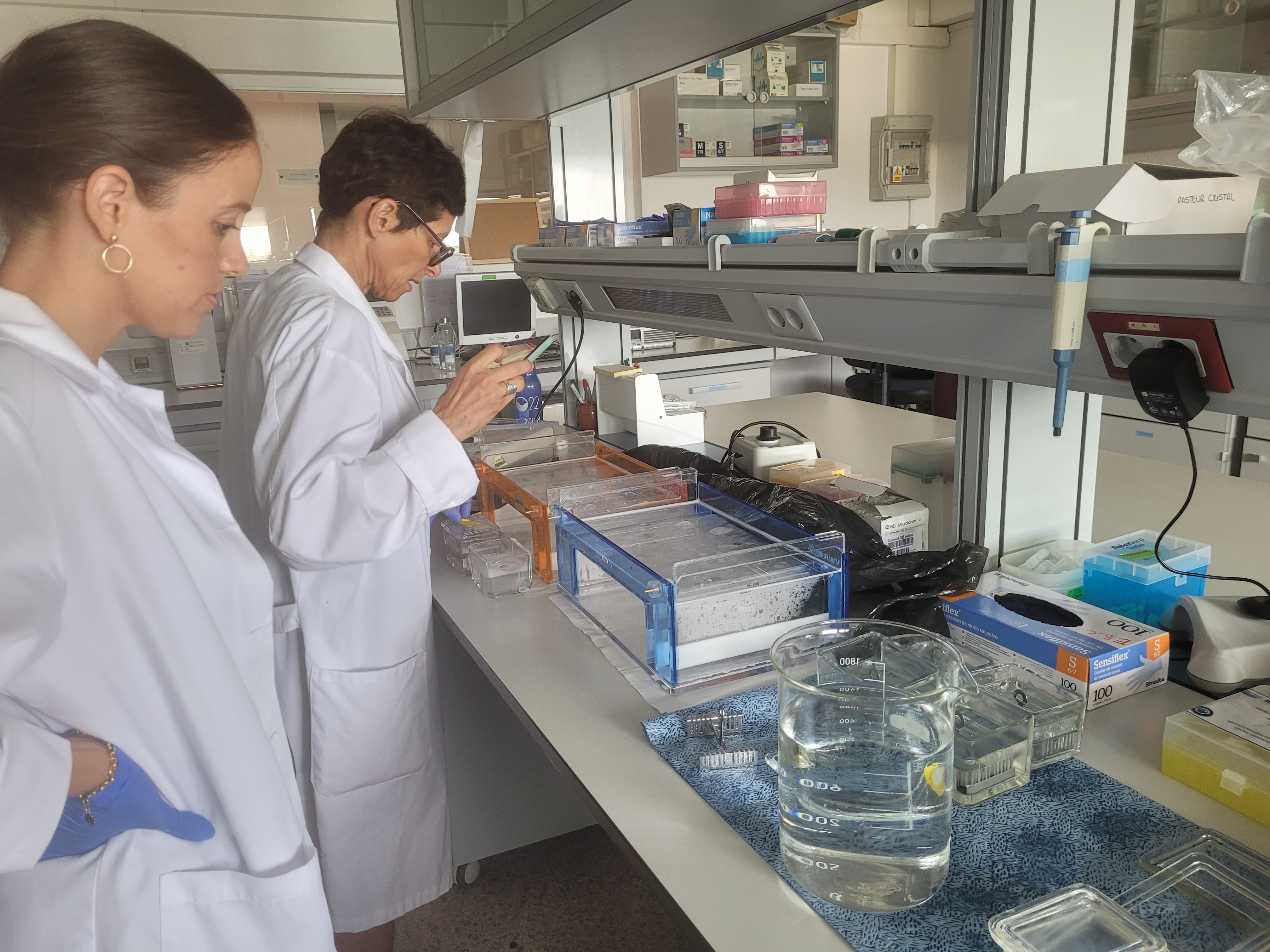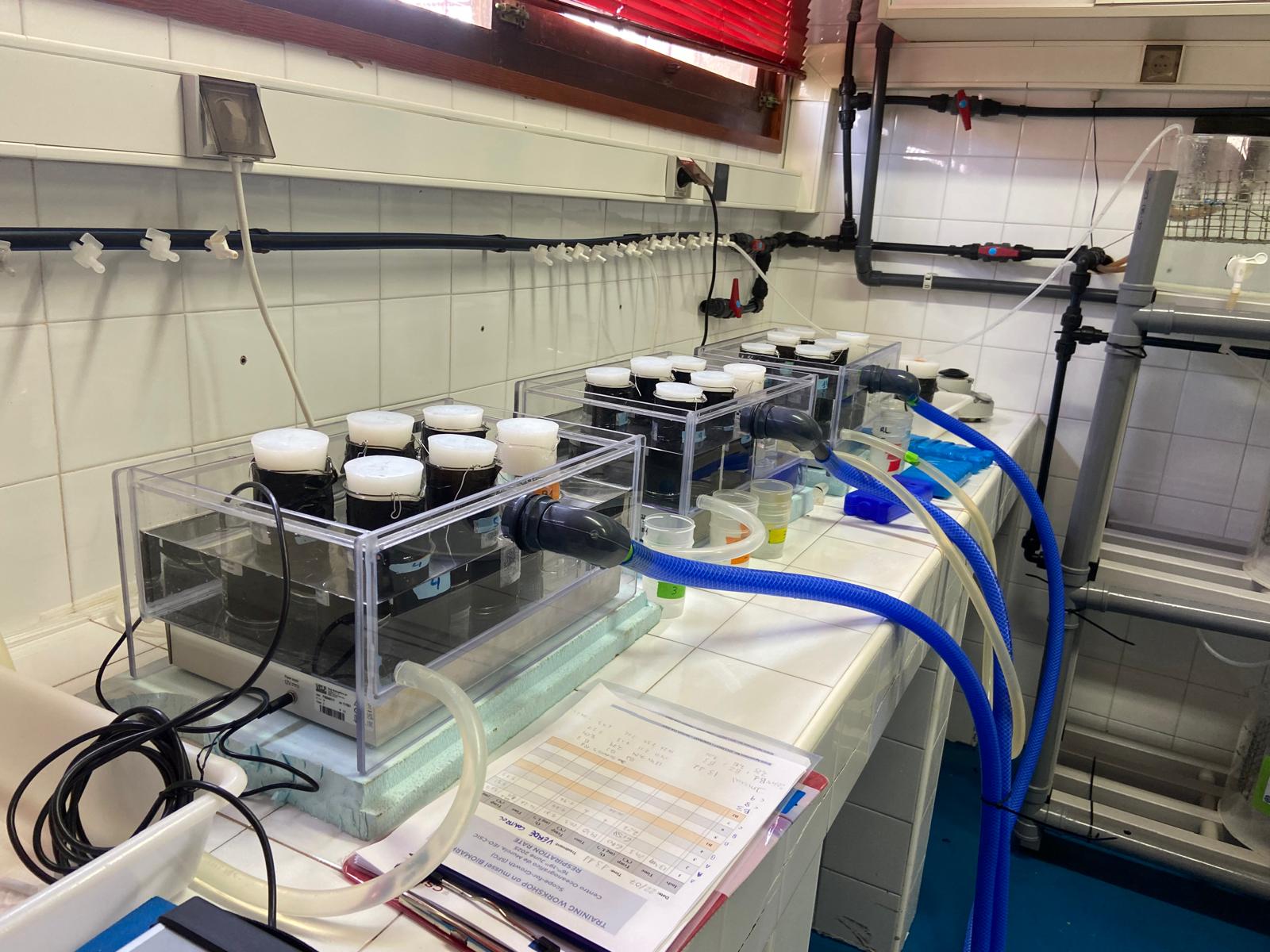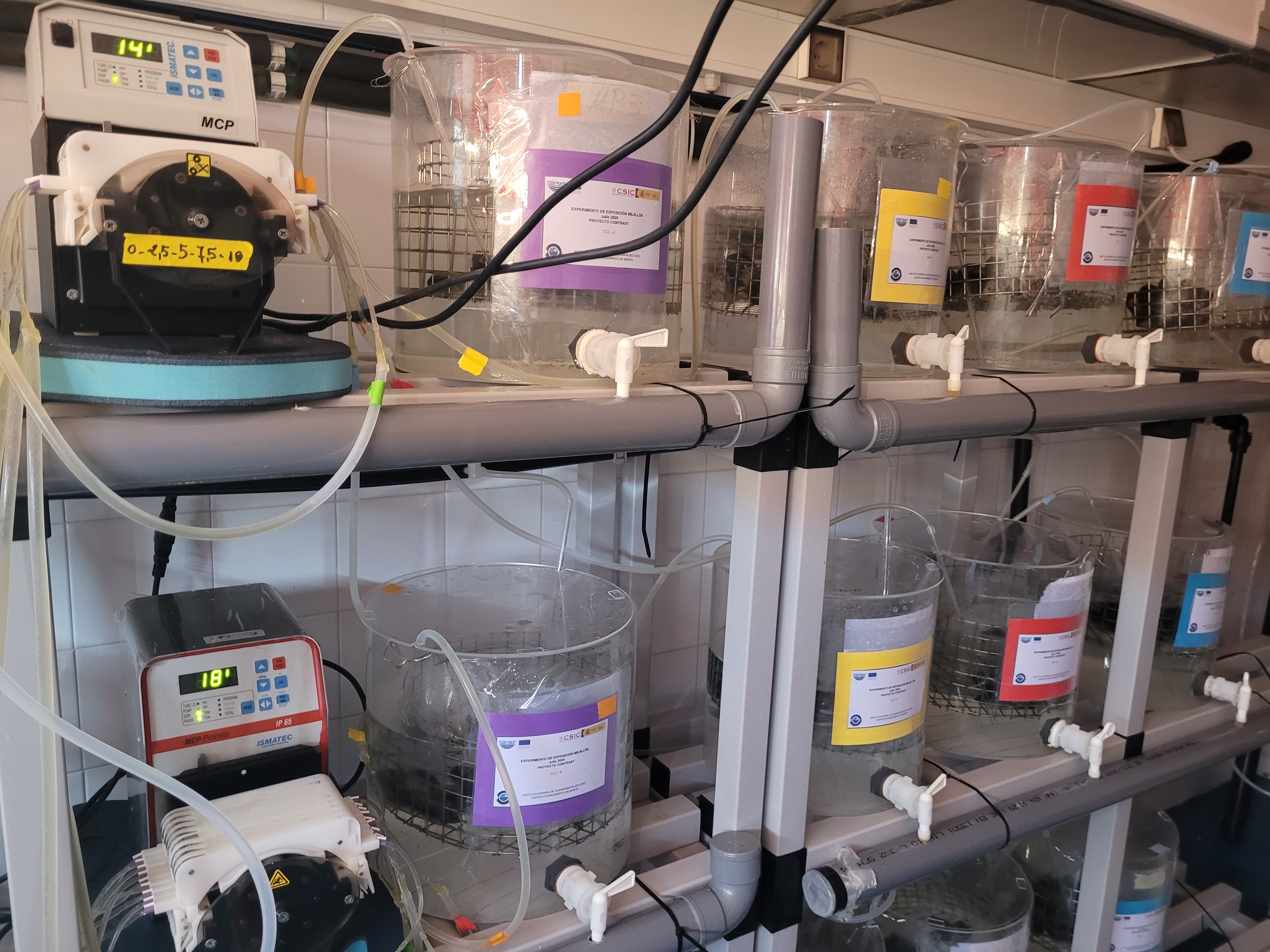Bivalve Exposure Field Experiments this Summer

Investigating Emerging Contaminants in Marine Ecosystems
This July, researchers are conducting a field experiment at the Oceanographic Centre of Murcia in Spain, as part of the European research project CONTRAST. The aim of the study is to assess the biological effects of emerging contaminants—chemical substances that are increasingly detected in aquatic environments and may pose risks to marine life.
Focus on Mussels as Bioindicators
The experiment centres on bivalve mussels (Mytilus galloprovincialis), a species commonly used to monitor environmental health. By applying a wide range of analytical techniques, the research team is investigating how these pollutants affect mussel biology. This includes:
- Omics technologies to study changes in metabolism and gene expression
- Measurements of cellular energy levels and physiological functions
- Assessment of oxidative stress and DNA integrity
A Collaborative European Effort
This multidisciplinary study is coordinated by the Spanish National Research Council (CSIC) and involves several leading European research institutes:
- NIVA (Norwegian Institute for Water Research, Norway)
- IFREMER (French Research Institute for Exploitation of the Sea, France)
- CEFAS (Centre for Environment, Fisheries and Aquaculture Science, United Kingdom)
Together, these partners are working to better understand the impact of emerging contaminants on marine organisms and contribute to improved environmental risk assessment across Europe.




